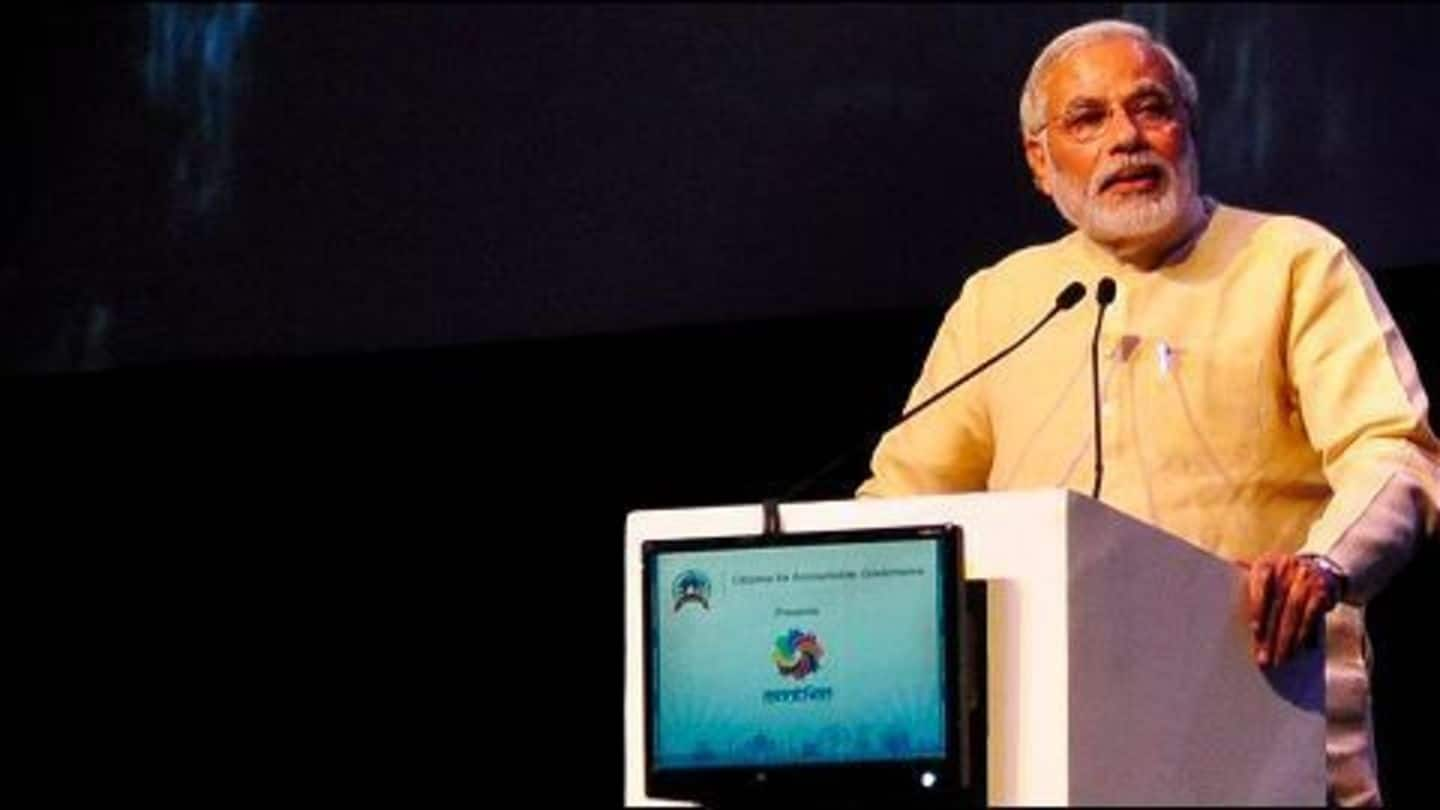
Modi battles for timely, transparent & trouble-free RTI
What's the story
Addressing the 10th anniversary of Central Information Commission, Prime Minister Narendra Modi said that, while replying to RTIs government departments should comtemplate 3Ts- Timeliness, Transparency and Trouble-free approach. He said that the right to information is not only related to the right to know but also the right to question. PM said that aim of RTI is to bring a positive change in governance.
RTI
What is the RTI act?
The Right to Information (RTI) act was passed by Indian parliament in 2005. The act required every public authority to computerise their records for wide circulation. Under the act, every public authority needed to respond to the information requested by a citizen within 30 days. Information disclosure in India was restricted by the Official Secrets Act 1923 which was relaxed by RTI.
Achievement
The achievements of the RTI act
Information accessed through the RTI Act played a great role in exposing big scams like 2G spectrum, coal block allotment, Commonwealth games etc. Civil services officials had to bow down to many applications filed by RTI activists and disclose their assets and liabilities. Acting on an RTI by Subhash Agrawal, Supreme Court started publishing details of assets of all judges of the Supreme Court.
Activists
CIC lowers pending cases, RTI activists cry foul
After Vijai Kumar became the Central Chief Information commissioner (CIC) on June 2015, the no. of pending cases and second appeals came down to 13 in October which used to be between 500-1000 on an average. RTI activist, Commodore Lokesh Batra (retd), said that CIC rejects seconds appeals blindly. CIC does not maintain a central registry for received and rejected second appeals, killing transparency.
Controversies
Controversies over the RTI act
There have been controversies over several government institutions like CBI not coming under the RTI. Over the controversy of the Attorney General of India (AGI) not coming under RTI, a bench of CIC said that AGI is neither a public authority nor a public servant. In Aug 2013, an amendment to RTI removed political parties from the scope of the law creating a controversy.
6 Oct 2015
Government presents guidelines for RTI replies
Ministries were asked to mention detailed reasons for denial of information sought by people under RTI Act. It was noticed that different authorities were providing information in different formats. Mention of relevant sections of the RTI act was mandatory when the information is denied. The reply should contain the name, designation, official telephone number and email ID of the Central Public Information Officer (CPIO).
Definition
What is a second appeal?
Any person who does not receive a reply in the specified time or is not satisfied by the reply, can file a second appeal within 90 days from the date when the information should have been received.